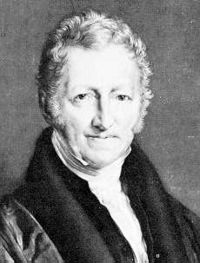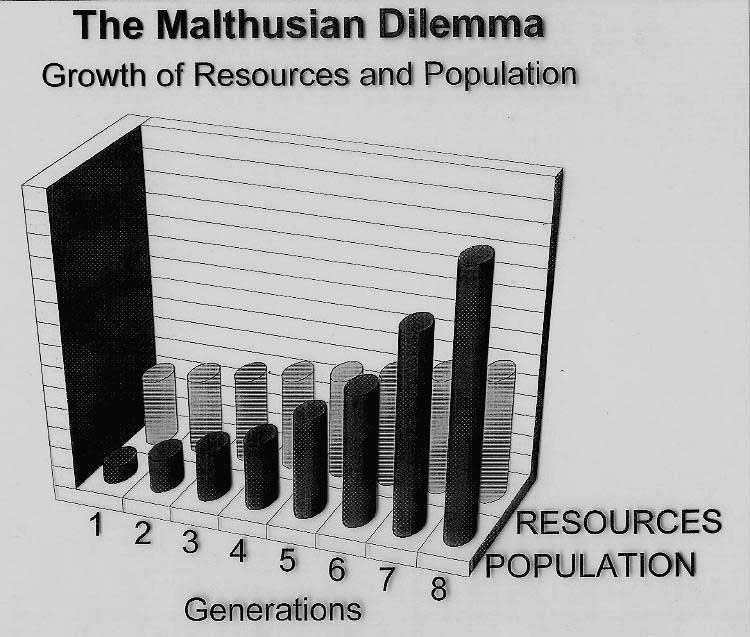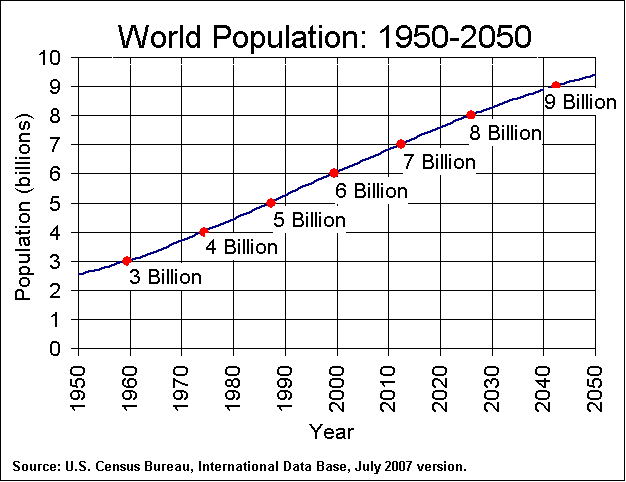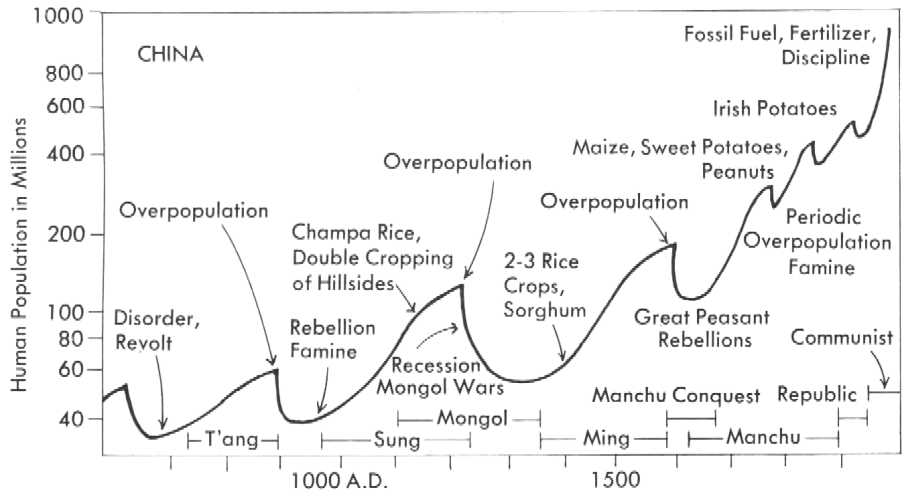 Intuition
Intuition 

What Thomas Malthus meant.
Parson Malthus' importance:
- What did he say in the Essay of 1798 and in every edition until 1830 about the differential progression between population and the means of subsistence?
- What was important about Malthus writing to Darwin's theory of selection upon reading Malthus a generation later?
- Was Malthus correct in his differential assumptions about population and the food supply?
- Why did Marx characterize Malthus as an apologist for the upper classes?
- Closing remarks.
subsistence, the way in which people derive their sustenance, provide for their familes and assure security for their descendents.
rule of 70 and 72
refers to doubling time, that is the time it takes have two times the present number.
The standard population doubling series is 1, 2, 4, 8, 16, 32, 64, 128, 256, 512, 1024
The heuristic tool the "Rule of 70" is derived from the Natural Logarithm of 2, which is 0.693147. When dealing in percentages, this becomes 69.3147. You will find an occasional reference to the more accurate Rule of 69.3 (or the Rule of 69), but both the Rule of 70 and the Rule of 72 are far more widely used.
Rather than obtaining a population doubling period, you would typically calculate an investment doubling period. In finance, the Rule Of 72 is probably used in preference to the Rule Of 70 as 72 has more whole number divisors (72, 36, 24, 18, 12, 9, and 8) than 70 (70, 35, 14, 10, and 7). .
arable land -- acreage available to produce food, staple and market produce,
Agrarian reform
- refrigeration
- irrigation
- medication
- common quality is electricity, or an energy subsidy.
Consider what the numbers mean and what they -- do not mean -- since information can mask as well as reveal certainties.
meaning does not mean population total number age structure per capita a measure per person access density number per square area growth rate and health arable land agriculturally useful productive fertility rate children born per each woman periodic, but life-long. China's growth 700-1900 A.D.
Essay
The world of the eighteenth century was a transition based on a rapid rise in birth rates and an increase movement of people due in part to four world wars, but no less due to canal building, manufacturing and developments in smelting iron that were useful in making the steam engine more efficient.
The recognition that agriculture --though undergoing a series of prodigious efficiency measures-- was a limitation on the size of families, was not a new idea, as the Church father Tertullian had suggested in the end of Roman Empire. What was new is that Malthus wanted us to think exponentially about the present as a seamless set of influences on future conditions.
Darwin --with Malthus help-- recognized that an important fact is that every creature carries in its biological inheritance the history of life on earth.
The tools it takes, the time involved and the knowledge necessary to understand the Malthusian dilemma and its limitations give us a clue to how nature works and how humans adapt to change.
Malthus knew that to add to the vast store of human knowledge about the places we inhabit mathematical formulas and measurement had to be applied to understanding what a parish, or a province could do to anticipate the future population and demands of people to whom the Church entrusts its wealth and from whom a parish garners its sustenance in the form of tithes (legally required donations to a specific church).
Compare and contrast McKibben and Malthus definition of the demographic argument over population increase.
J. Siry
10 November 2007, 23 September 2014.






